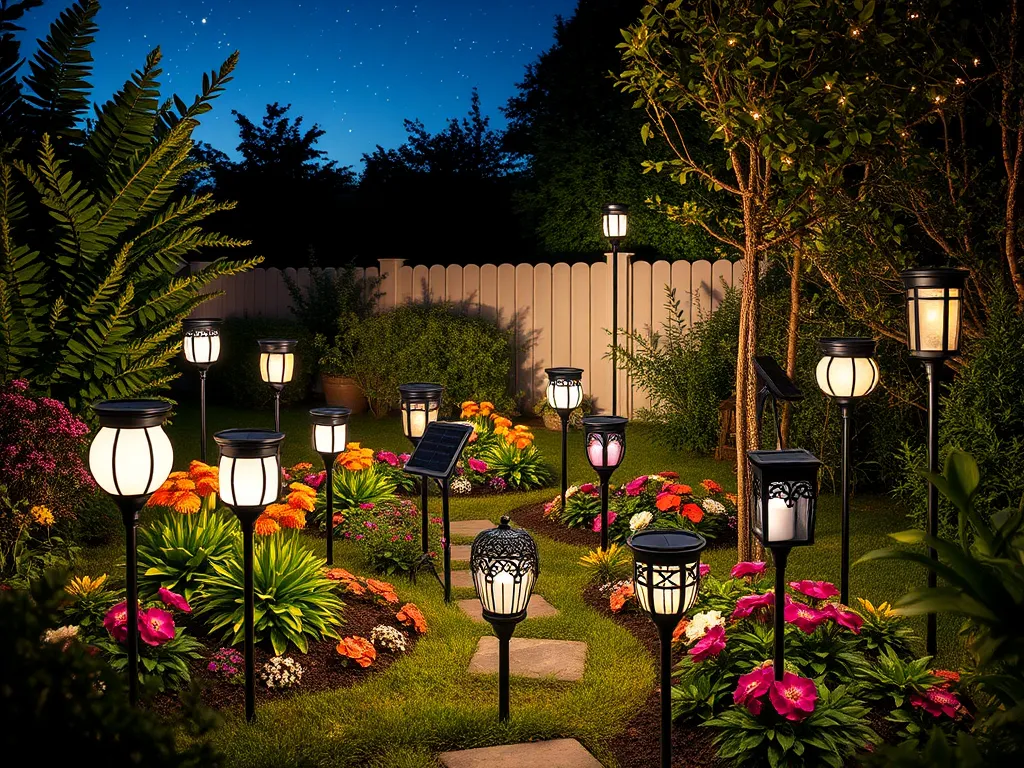10 Best Solar Lights for Outdoor Lighting

The Complete Guide to Solar Lights
Solar lights have emerged as a popular and sustainable lighting option for outdoor spaces. These lights are powered by sunlight, which is converted into electricity through solar panels. This renewable energy source offers numerous benefits and is a great alternative to traditional lighting solutions. In this article, we will explore the different types of solar lights, factors to consider when choosing solar lights, the benefits of using solar lights, tips for installation, and maintenance and care guidelines.
Solar lights come in various styles and designs, making it easy to find the perfect lighting solution for your needs. Whether you want to illuminate your garden, pathway, or deck, there is a solar light that suits your requirements. The popularity of solar lights has increased due to their affordability, ease of installation, and energy efficiency.
One of the main advantages of solar lights is their ability to harness solar energy and convert it into electricity. This eliminates the need for wiring or external power sources, making solar lights a cost-effective and eco-friendly lighting solution. Additionally, these lights automatically turn on at dusk and turn off at dawn, providing hassle-free operation.
Types of Solar Lights:
There are several types of solar lights available in the market, each serving a different purpose. Let's explore some of the popular types:
1. String Lights
String lights are a versatile choice for outdoor lighting. They consist of multiple LED bulbs connected by a string, creating a decorative and ambient effect. String lights can be easily draped around trees, fences, or pergolas to create a magical and warm atmosphere.
2. Pathway Lights
Pathway lights are designed to illuminate pathways, walkways, and driveways. These lights are usually installed along the edges of the pathway and come in various styles such as stake lights or bollard lights. They provide safety and enhance the aesthetics of the outdoor space.
3. Spotlights
Spotlights are ideal for highlighting specific areas or objects in your garden or landscape. These lights emit a focused beam of light, allowing you to showcase your favorite plants, statues, or architectural features. Spotlights can be easily adjusted to direct light where it is needed.
4. Floodlights
Floodlights are powerful solar lights that can illuminate larger areas, such as parking lots or sports fields. They provide a bright and wide-angle light beam, ensuring optimal visibility and security. Floodlights are commonly used for commercial or industrial applications.
5. Garden Lights
Garden lights are designed to enhance the beauty of your garden during nighttime. These lights come in various shapes and designs, such as lanterns, flower lights, or animal-shaped lights. Garden lights add a charming and whimsical touch to any outdoor space.
6. Deck Lights
Deck lights are specifically designed for illuminating decks, patios, or outdoor staircases. These lights are installed directly on the deck surface or on the railing, creating a warm and inviting ambiance. Deck lights are a practical and stylish addition to any outdoor entertaining area.
Factors to Consider When Choosing Solar Lights
When selecting solar lights for your outdoor space, there are several factors to consider:
1. Brightness: Determine the desired brightness level based on the intended use of the lights. Brighter lights are suitable for security purposes, while softer lights create a cozy atmosphere.
2. Battery Capacity: Check the battery capacity to ensure it can provide sufficient power for the lights to operate throughout the night. Higher battery capacity will allow the lights to last longer.
3. Charging Time: Consider the charging time required for the solar lights to fully charge. Faster charging time is preferable to ensure the lights are ready to use every night.
4. Solar Panel Efficiency: The efficiency of the solar panel determines how effectively it converts sunlight into electricity. Look for solar lights with high-efficiency panels to maximize energy conversion.
5. Weather Resistance: Outdoor solar lights need to withstand various weather conditions. Choose lights with durable and weather-resistant materials to ensure they can withstand rain, snow, and extreme temperatures.
6. Installation Options: Consider the installation options available for the solar lights. Some lights can be staked into the ground, while others can be mounted on walls or fences. Choose the option that suits your outdoor space.
Benefits of Solar Lights
Solar lights offer several advantages over traditional lighting solutions. Some of the key benefits include:
1. Energy Efficiency: Solar lights are powered by renewable energy from the sun, making them highly energy-efficient. They do not rely on electricity from the grid, reducing energy consumption and ultimately saving on utility bills.
2. Cost Savings: By utilizing solar energy, you can significantly reduce your electricity bills. Although the initial cost of solar lights may be slightly higher, the long-term savings outweigh the investment. Moreover, solar lights require minimal maintenance, further reducing costs.
3. Environmentally Friendly: Solar lights contribute to a greener environment by reducing carbon emissions. They do not produce any greenhouse gases during operation, unlike traditional lighting sources that rely on fossil fuels.
4. Easy Installation: Solar lights are incredibly easy to install. There is no need for wiring or electrical connections, which saves time and avoids the hassle of digging trenches or burying cables. Simply place the lights in the desired location and ensure the solar panels receive adequate sunlight.
5. Low Maintenance: Solar lights require minimal maintenance compared to traditional lights. Regular cleaning of the solar panels and replacing the batteries when needed are the primary maintenance tasks. Overall, solar lights are hassle-free and convenient.
Tips for Installing Solar Lights
Proper installation is essential for the efficient operation of solar lights. Here are some tips to ensure successful installation:
1. Find a Sunny Location: Place the solar lights in an area where they can receive direct sunlight for at least 6-8 hours a day. This will ensure optimal charging and longer operating hours.
2. Position the Solar Panel Correctly: Angle the solar panel towards the sun to maximize energy absorption. Adjust the panel's tilt or orientation as per the sun's position to achieve the best results.
3. Ensure Proper Drainage: When installing pathway lights or stake lights, ensure that the ground has proper drainage to prevent water accumulation. This will prolong the lifespan of the lights and prevent any damage.
4. Clean the Solar Panel Regularly: Dust, dirt, and debris can accumulate on the solar panel, hindering its efficiency. Clean the panel regularly with a soft cloth or brush to maintain optimum performance.
5. Replace Batteries When Needed: If the solar lights are not functioning properly or have reduced brightness, it may be time to replace the batteries. Follow the manufacturer's instructions for battery replacement.
Maintenance and Care
Regular maintenance and care will ensure the longevity and optimal performance of your solar lights. Here are some essential maintenance tasks:
1. Cleaning the Solar Panel: Keep the solar panel clean and free from debris. Wipe it with a damp cloth or sponge regularly to remove any dirt or dust.
2. Replacing Batteries: Over time, the batteries in solar lights may lose their capacity. Replace the batteries with new ones to ensure the lights operate efficiently.
3. Checking Connections: Inspect the connections between the solar panel, battery, and light fixture. Ensure they are secure and free from corrosion or damage. Tighten any loose connections if necessary.
4. Replacing Damaged Parts: If any part of the solar light is damaged or broken, replace it promptly. This includes the solar panel, light bulb, or casing. Contact the manufacturer for replacement parts.
5. Storing Solar Lights: If you need to store the solar lights for an extended period, ensure they are clean and fully charged. Store them in a cool, dry place to prevent any damage.
